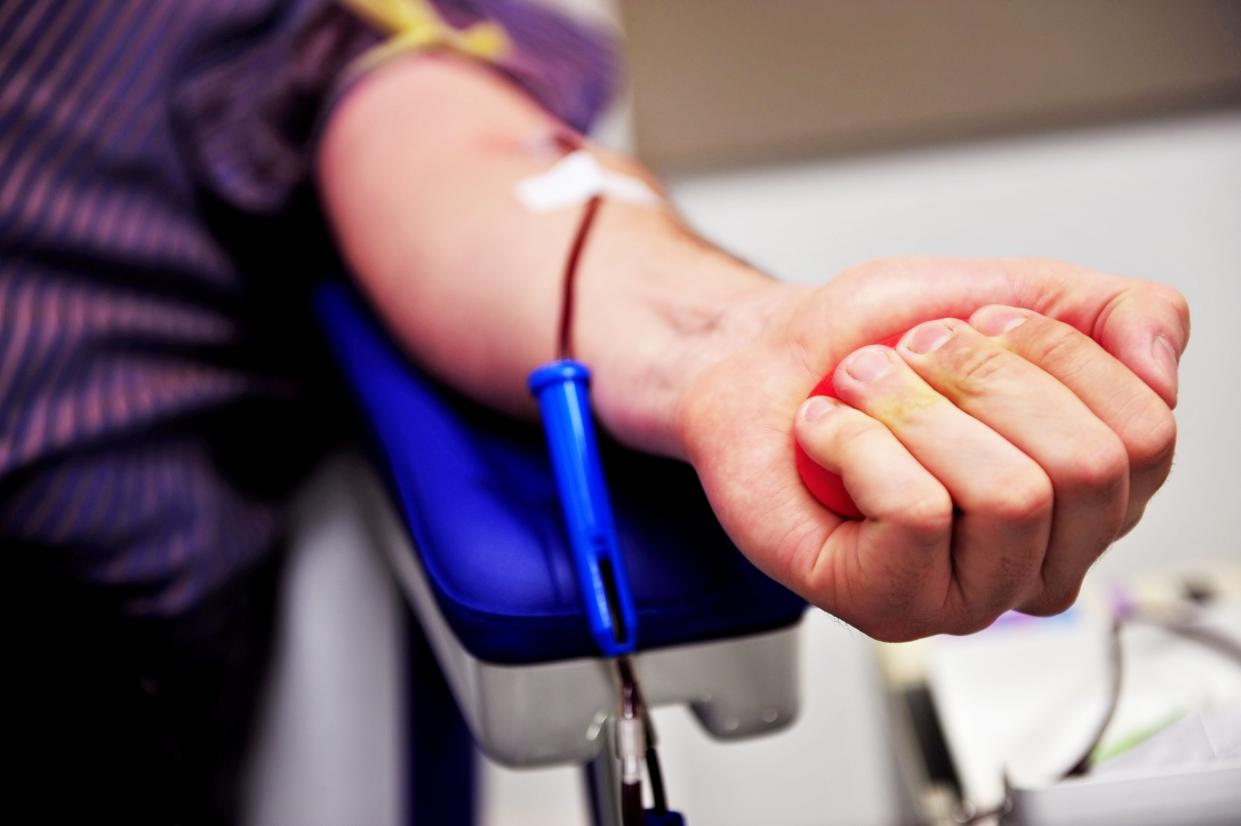NHS makes blood donor questions gender neutral in bid to be ‘more inclusive’

NHS Blood and Transplant (NHSBT) will make the questions it asks of all blood donors gender neutral from next month.
The change, which will come into effect on 14 June, is predicted to allow more people to be able to donate, the service says.
Under previous NHSBT guidelines, male donors were asked to disclose whether they have had sex with another man.
The newly renamed Donation Safety Check form will ask all donors, regardless of gender, about their recent sexual behaviour.
Announcing the change on Tuesday, NHSBT said the changes will mean that eligibility to donate will be based on individual assessment as opposed to a risk assigned to a group or population.
Lord Bethell, the Minister for Blood Donation said the change marks a “significant step forward” to making blood donation policy “fairer and more inclusive, allowing as many people as possible to make the life-saving decision to give blood safely”.
Those who have had the same sexual partner for the last three months, or if there is no known recent exposure to an STI or recent use of PrEP or PEP, can now donate.
If donors have had sex with a new partner, or multiple sexual partners in the last three months, they can donate as long as they have not had anal sex.
Under the previous rules, all men who have sex with men had to abstain from sex for three months before they could give blood.
The change follows a review by the FAIR (For the Assessment of Individualised Risk) steering group led by the Blood and Transplant service.
It concluded that using an individualised, gender-neutral approach would be fairer and still allow the safety of the blood supply to be maintained.
The change has been welcomed by LGBT+ rights groups, as it will allow men in long-term relationships to donate at any time.
Nancy Kelley, chief executive of campaign group Stonewall, said: “We support a blood donation system that allows the greatest number of people to donate safely.
“By linking donor eligibility to health, travel and sexual activity with an individualised assessment of risk, these changes will help ensure more people, including gay and bi men, can donate blood,” Kelley said.
NHSBT said the change will not affect the safety of blood donation or the process of giving blood.
Ella Poppitt, chief nurse for blood donation at NHSBT, said: “Patient safety is at the heart of everything we do. This change is about switching around how we assess the risk of exposure to a sexual infection, so it is more tailored to the individual.”
Read More
What exactly is rosacea and how can it be treated?
How can I get my marriage back on track?
How the pandemic and modern work made burnout an acceptable state

